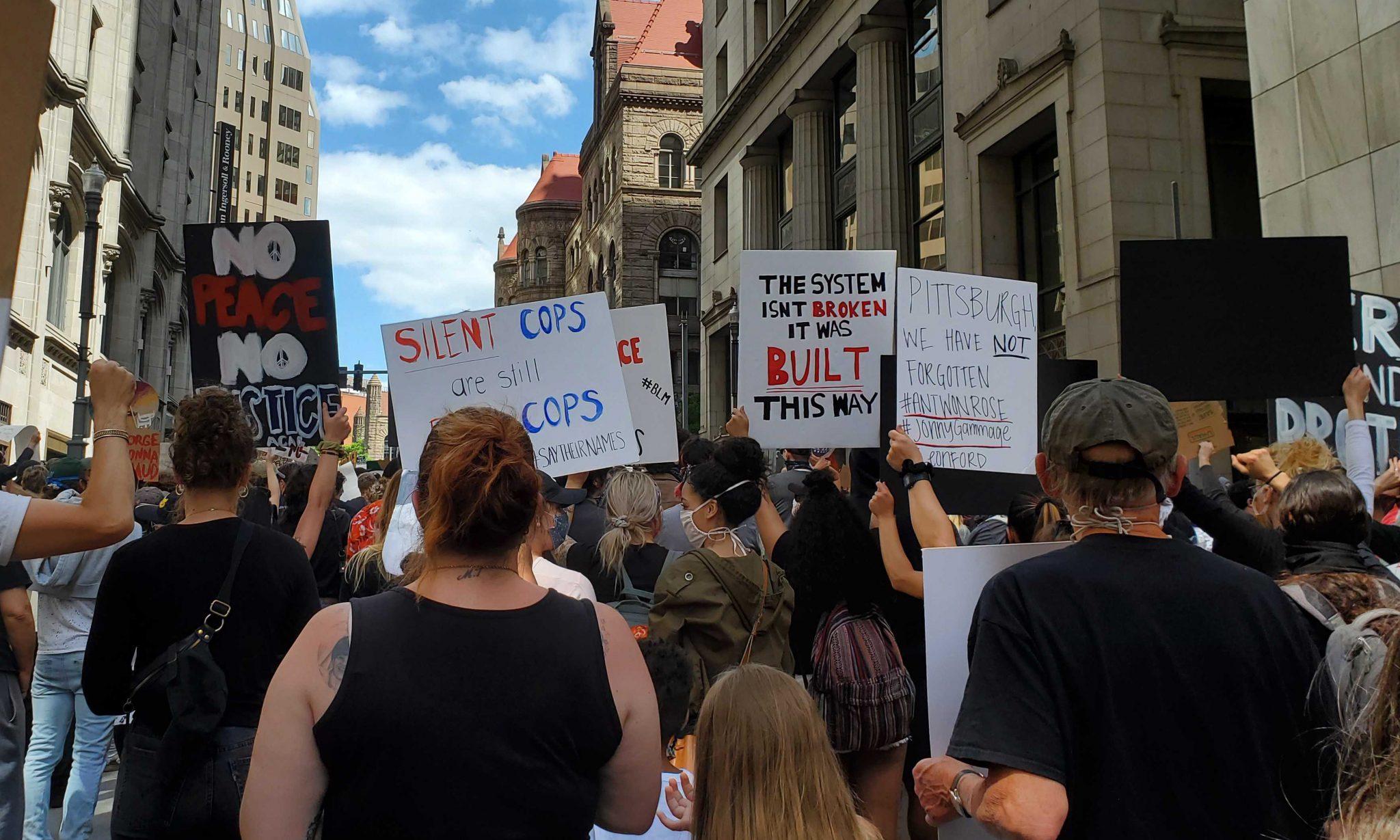Views expressed in opinion columns are the author’s own.
On Monday, I went to a protest in Washington, D.C., honoring Tony McDade, a black transgender man who was killed by a Tallahassee police officer. I attended in solidarity but felt somewhat uncomfortable. Attending this protest was one of the first times I had been in a space that wasn’t meant for me as a white person. In fact, it was explicitly designed for white people to take a step back, close their mouths and open their ears to the voices of black and LGBTQ individuals who often don’t have the microphone.
Addressing your privilege is awkward and uncomfortable. For even the wokest among us, white and non-black individuals will never understand the experience of being black in this country. At that protest, the only way I could express my support was through listening. But, my forced silence was the most important thing I’ve learned in the process of improving my allyship.
It’s time for white people to start talking less and listening more. To be clear, staying quiet doesn’t mean staying silent — it means that white people need to amplify black voices instead of just sharing their own.
In doing this, it’s crucial to understand the differences between performative allyship and actual solidarity. Performative allyship is exactly what it sounds like: shallow actions that only superficially display your support for a movement. It’s showing off your own woke-ness at the expense of taking part in the difficult, often uncomfortable work of being a stronger ally.
One example of problems arising from performative allyship was the recent #BlackOutTuesday campaign. The intention was for people to post black squares on Instagram in support of the Black Lives Matter movement, but it quickly became a counterproductive and ultimately hollow form of activism. After countless black squares started appearing on social media, black activists quickly pointed out that they were blocking out resources for activists and information about protests, ultimately doing more harm than good.
White people also need to understand that the onus to learn about racial issues is on them, not black people. It’s not the role of the oppressed to teach the oppressor. With infinite resources available, white people have a large role to play in educating each other instead of dominating the narrative.
It is a privilege to be in the position of learning about racism rather than experiencing it firsthand. As a white person, I have a part to play in dismantling the systematic oppression of black people in America. But a movement for racial justice can’t involve white people speaking over black activists.
It’s understandably difficult to avoid vocalizing your thoughts and feelings during this time. I get that; I am a white person writing a column on how to improve allyship and solidarity on an issue that has never personally harmed me. But a crucial part of dismantling racially oppressive systems is the uncomfortable realization that white people are not the center of attention in this conversation. Rather than contribute your own thoughts, it’s imperative to share the voices of those who feel the direct pain and suffering of generations of oppression.
Instead of posting black squares on your Instagram feed, follow black influencers who share the same creative passions as you. Instead of writing lengthy Facebook posts exalting your support for Black Lives Matter, read books by black writers which explain the deeply-rooted oppression that has led up to today’s reckoning. Instead of sharing dainty artwork from white creators, search for educational graphics from black creators that will inform your audience.
Even if they actively fight against the racist power structures in this country, white people unwittingly contribute to them if they speak over those who they wish to stand with. White people’s perspective on racism can’t come before the voices of black people who live through it every day.
Maya Rosenberg is a rising junior journalism and public policy major. She can be reached at maya.b.rosenberg@gmail.com.



